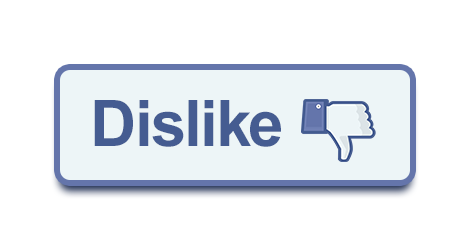At times, it seems like our online interactions have
reverted to become “anti-social” media.
I’m here today to advocate a better approach….for health, sanity, and
professional well-being.
Let’s put the size of this problem into scope. Just how BIG is social media in the first
place?
According to the Pew Research Institute, 70% of all adults
in the U.S. use some kind of social media.
The number gets bigger when you consider just 30-49 year old group (82%)
and really pervasive with the 18-29 crowd (90%) (https://www.pewresearch.org/internet/fact-sheet/social-media/).
The top social networks have a TON of users! By the numbers:
1. Facebook: 2.45 billion users
2. Instagram: 1 billion users
3. Twitter: 330 million users
4. LinkedIn: 310 million users
5. Reddit: 430 million users
(https://www.searchenginejournal.com/social-media/biggest-social-media-sites/#close)
That’s a lot of people spending time posting pictures of
their dinners, cat videos, and, oh yes, starting fights about everything from
politics to conspiracy theories. We all
know that the bad stuff can get under our skin, but there are lots of reasons
to start actively managing our online presence.
The big one? That
potential employer is probably looking at your Facebook page (and everything
else you have online). According to
Business News Daily, companies seeking applicants are most likely to hit up
your Facebook, Twitter, and LinkedIn pages (https://www.businessnewsdaily.com/2377-social-media-hiring.html). Let’s take on some of the misconceptions
about how we are managing our online profiles:
“My profile is private; I can post whatever I want.”
Not so fast; there are a TON of ways to access private
social media accounts. Many are based in
offshore ad networks that find ways around privacy settings. Yes, it’s pretty easy for someone without
hacking skills to find your account.
“It’s free speech; an employer can’t use my personal
opinions against me.”
There’s been a LOT of debate on whether or not social media
postings do, in fact, constitute free speech.
In several cases, employees who were fired for discussing inadequate pay
and unsafe working conditions were fired but then forced to be reinstated as
they were discussing “matters of public interest.” That being said, an employer who doesn’t like
what they find on your page can usually come up with another way not to hire
you. Legally? It’s a grey area. Ethically?
Try proving the potential employer wrong.
“But I deleted it.”
Nothing ever really disappears on the net. Don’t believe me? Check out the Wayback Machine, a site that’s been archiving snapshots of the net since the 90’s (I found some really old pics of myself….I don’t miss the haircut, but I do miss the waistline).

Even long extinct websites live on in
perpetuity in this catalog of cyberspace: https://archive.org/web/
So, what’s a person to do?
Like you, I’ve said some things online that I wish I could take
back. In the meantime, consider these
steps.
1. Clean up your profiles: Yes, there might be archives out
there, but do what you can to limit the pictures and posts that might present
you in a non-professional light.
2. Search for orphan pages: You may have an old social media
page from “a long time ago on an internet far, far away” from a time when you
were, let’s say, more free in your postings.
Hunt these dinosaurs down and kill them.
3. Manage your privacy settings: You can control who becomes
your friend or follower. Allowing for
automatic approval is asking for bad content to end up on your page. At the same time, consider managing who is
able to “tag” you in posts or photos.
4. Set up a Google alert.
Google will, upon your request, alert you any time new content with your
name emerges on any page they index. It’s
free and helpful.
5. Bury the bad with the good. Generally speaking, the more internet users
view content, the more likely it is to show up on a search. Make it a goal to create content regularly
that showcases your talent and skills.
You might not be able to delete every picture of you doing 3 a.m. beer
pong in college, but you CAN get more good info out there about yourself.
In the next posting, we’ll hit up some of the more psychological
aspects of making social networks more social (i.e. the best ways to avoid
getting into a flame war and some paths out if you do). Stay tuned!

Comments
Post a Comment